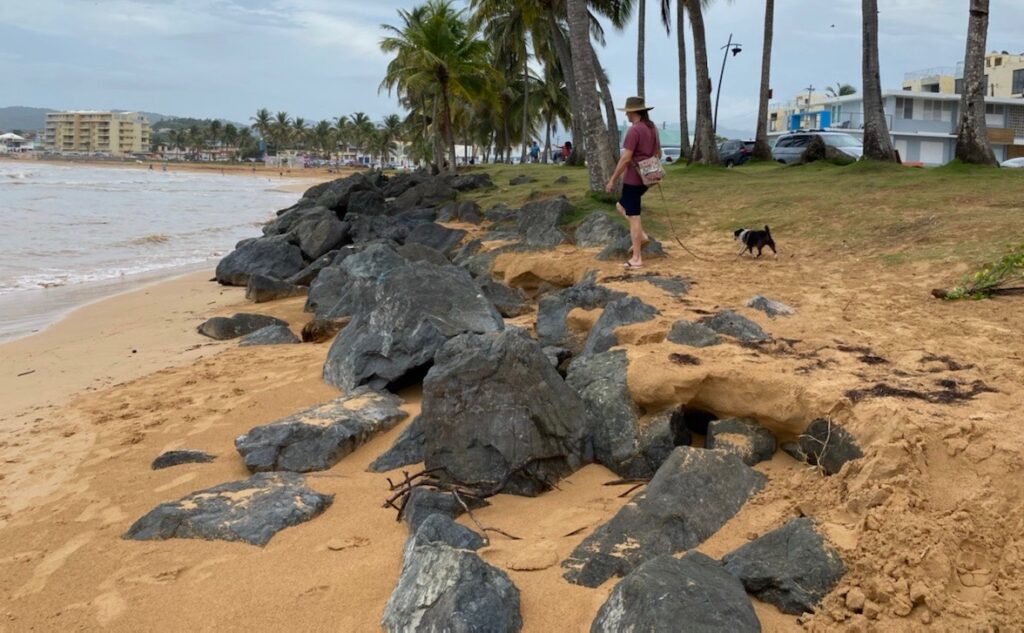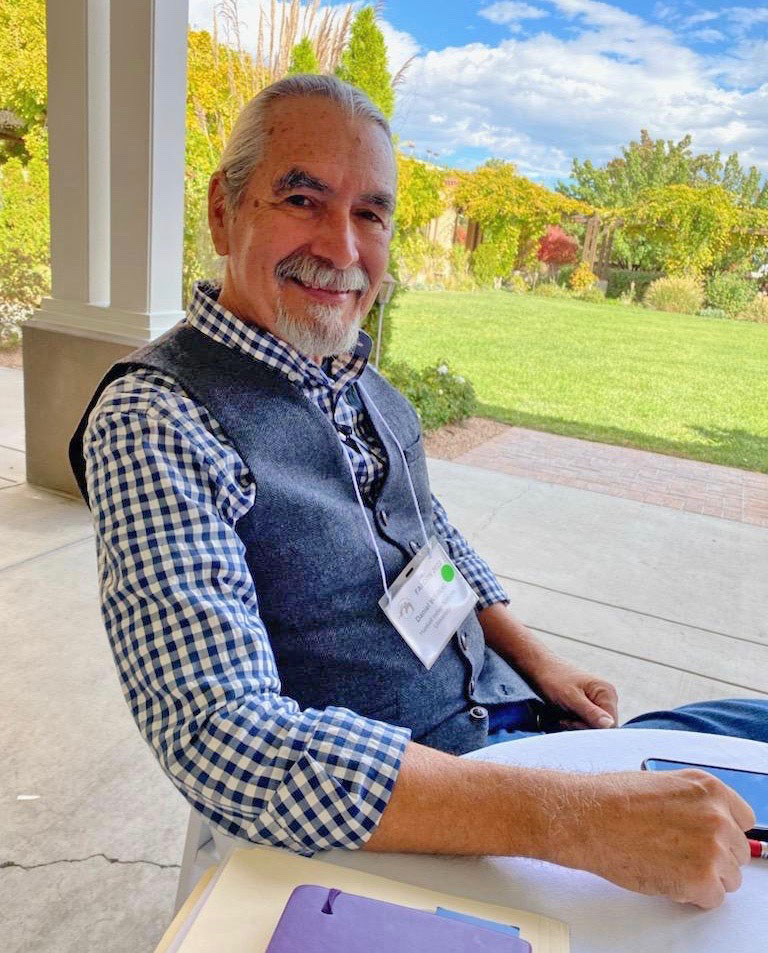The largest award ever made to a tribal college will investigate the impact of climate change on coastal regions from Alaska to Puerto Rico.
By Melanie Lenart

Researchers are planning to take an Indigenous approach to tackling coastal hazards relating to climate change in a recently awarded $20 million National Science Foundation grant to Haskell Indian Nations University in Lawrence, Kansas.
The project, known as Rising Voices, Changing Coasts: The National Indigenous and Earth Sciences Convergence Hub, is the largest single grant ever awarded to a tribal college or university. Project Investigator Daniel Wildcat, director of Haskell’s Environmental Research Studies program, said the five-year project builds on multiple partnerships with a wide range of educational institutions and research centers.
“We’ve just been pounding the table every chance we got to say, ‘You’ve got to include this, not because it’s going to make us feel better, but because you really need this. You need if we’re going to successfully address climate change’,” Wildcat said during a break from the First Americans Land-Grant Consortium meeting in Albuquerque.
The hub will follow Indigenous methodology by first establishing or cementing relationships with Indigenous and local people in the study areas, and then working with them to, among other things, ground-truth some of the remote sensing data available through western science techniques and research potential desired uses of climate projections and other climate change data.
The initial study areas are Alaska, Louisiana, Hawai’i and Puerto Rico. Wildcat envisions a potential expansion in the third year of the study, perhaps to include areas in New England and the Pacific Northwest.
Haskell Indian Nations University is operated by the Bureau of Indian Education to serve members of all federally recognized tribal nations in the United States. Founded in 1884 as the United States Indian Industrial Training School, Haskell added a junior college curriculum in the 1970s and now offers four baccalaureate degrees, including Environmental Science.
“We are the de facto national tribal college,” Wildcat said. “I kept thinking a national hub.”
When longtime collaborator Heather Lazrus at the National Center for Atmospheric Research reached out to him in 2020 with news that the National Science Foundation had issued a call for proposals to establish a hub, they quickly pulled together a team of Indigenous scholars and western scientists and applied.
The partnership between Haskell and the Center dates back to before on a collaborative 2008 climate change symposium that also featured the blending of Indigenous knowledge with western science. Collaboration continued later with the Rising Voices Center for Indigenous and Earth Sciences.
Wildcat’s work with another group he helped establish, the Indigenous Peoples Climate Change Working Group, also yielded partners nurtured across many years of relationship forming. “The other IPCC,” as Wildcat calls the working group, expanded from a tribal-nation focus to a more global Indigenous emphasis, in recognition that some Hawaiian and Alaskan Natives who held Indigenous knowledge were not associated with a federally recognized tribal nation. The University of Hawai’i and the University of Alaska are among the project partners.
“We threw this proposal together in just a little over two months,” he said. “I’m telling you, it was a race to the finish line. We could not have done it if we did not have those relationships in place.”

Although not funded in the initial round, they worked with the NSF on minor adaptations to the proposal. By June of 2021, Wildcat received an award letter acknowledging support for the $20 million project from the American Rescue Plan Act of 2021. Wildcat said the $20 million project involves 61 researchers and 16 subcontracts.
Wildcat said that one of his co-investigators, Paulette Blanchard, was headed to Puerto Rico on Oct. 22 to launch the research on the Caribbean island with an affiliation to the United States. Puerto Rico has undergone a series of onslaughts to its beach-lined coasts, with Hurricane Maria in 2017 causing extensive erosion to beaches already dealing with sea level rise. The shrinking beaches are contributing to local conflict and loss of sea turtle habitat.
Blanchard, an Absentee Shawnee and Kickapoo, is a Haskell alumnus who recently received a Ph.D. from the University of Kansas. Like her mentor, she works on converging “Indigenous methods and methodologies with mainstream language of western science.”
Wildcat hopes she and other “young Indigenous scholars” will carry on the work for years to come, as he hopes to spend his time writing more books once the initial five-year project ends. A mentee of Vine Deloria Jr., his books include the 2009 Red Alert: Saving the Planet with Indigenous Knowledge.
“All of these large scientific institutions have been forced to examine that all of these domains have been the domain of white men,” he said. “I’ve been a part of Indigenous thinkers, scientists, philosophers, who’ve been arguing now for at least two decades that you need to broaden your understanding of what science is to include TEKs, indigenous knowledge.”
“I really think our greatest contribution to NSF will be, at the end of this five years, to show that, ‘You know what, you’re going to do science a little differently if you want to really be able to take advantage of this local wisdom and knowledge that’s held by people who’ve lived in places for hundreds, sometimes thousands, of years’.”
• • •
Melanie Lenart is a regular contributor to Native Science Report.
Story published November 8, 2022
• • •
Enjoyed this story? Enter your email to receive notifications.

I was taught that as Natives we are the keepers of the Earth. This is so fantastic for Indigenous people to be part of the “Big Picture.” I love the fact that in recent years the Native knowledge is being heard and sought out. Congratulations to HINU and all who worked to make this happen!